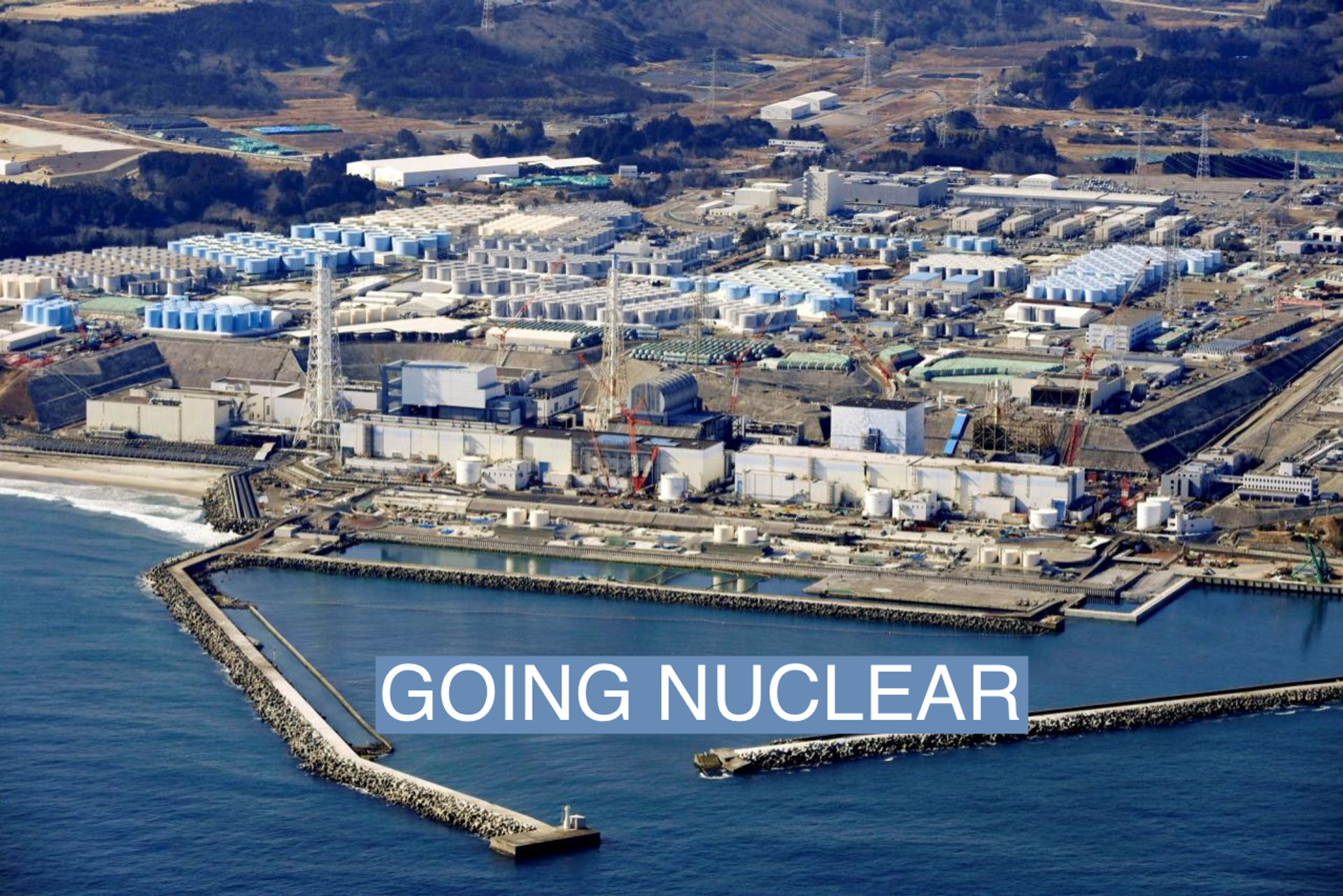The News
Japan’s public now supports a return to using nuclear energy, recent polling has found.
According to Japan’s newspaper, Asahi Shimbun, 51% of respondents to a poll conducted last month were in favor of bringing nuclear plants back online in the country, while 42% said they would prefer it to stay offline.
It signals a major shift in public opinion in the country, as most respondents in prior polls were opposed to returning to nuclear power following the 2011 Tōhoku earthquake and subsequent meltdown of the Fukushima Daiichi reactor.
Japan’s decision also mirrors how other countries — and their residents — are starting to come around on nuclear power, as the war in Ukraine has forced nations to consider alternative energy supplies that don’t rely on Russia.
Know More
Japan’s government has outlined plans to bring seven nuclear reactors back online over the summer, in a bid to dodge blackouts, Bloomberg reports. Prime minister Fumio Kishida has called for new technology to be developed in addition to restarting existing reactors.
The country has been in the midst of an energy crisis, brought on in part by the war in Ukraine and costly, reduced energy supply globally.
Other countries are already boosting their supply of nuclear power. Nuclear reactors slated for closure across Europe have remained operational as the continent looks to ensure energy security.
Expert View
“The trends happening in Japan are not just happening in Japan, and they’re a little bit more pervasive across the international dynamics and geopolitical situation,” Brett Rampal, a nuclear energy expert at energy-focused media platform Veriten, told Semafor.
In recent years, Rampal said, many Western nations have become more open to nuclear power as a low-carbon energy supply. But the war in Ukraine “has caused many people to reassess their long-term energy strategies” without a reliance on Russian energy, shifting the conversation toward energy security.
“Come for the climate change, stay for the security,” Rampal said.
That dynamic has led to a more positive mood toward nuclear among the public and policymakers.
The View From Germany
Germany had planned to phase out the use of its nuclear power plans by the end of 2022. But given that the country cut off gas from Russia after the war broke out, Chancellor Olaf Scholz ordered for the plants to stay open until at least April of this year.
Public opinion is also shifting in Europe’s largest economy.
A Der Spiegel poll in August 2022 found that only 22% of respondents supported shutting down the plants, while 41% were in favor of building new ones. That’s a sea change from three decades ago, when a similar poll found that only 3% of respondents thought Germany should build new nuclear plants.
The View From France
In September, France began looking into legislation which would make it easier to launch nuclear projects, with a goal of beginning construction on a next-gen nuclear reactor by May 2027.
President Emmanuel Macron has thrown himself behind nuclear energy as part of his country’s net neutrality plans, and the government is planning for the construction of six new reactors.
The View From China
China is rapidly expanding its nuclear energy supply. The country is aiming to have 150 new reactors operating in the country by 2035, and claims that if it continues on pace the country will reduce emissions by 1.5 billion tons.
China currently ranks third in the world for nuclear power generation, following the U.S. and France. President Xi Jinping plans for the country to hit net zero by 2060.
